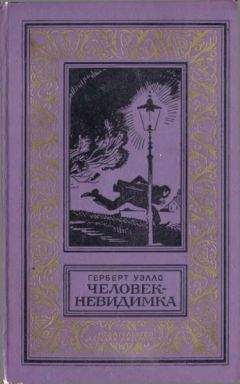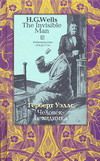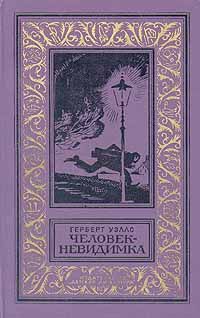H. Wells - Английский язык с Г. Уэллсом "Человек-невидимка"
“What else can we do (что еще мы можем сделать)?” said Adye. “I must go down at once and begin organizing (я сейчас же пойду и начну устраивать /розыск/). But why not come (а почему бы и /вам/ не пойти)? Yes — you come too (пойдемте)! Come, and we must hold a sort of council of war — get Hopps to help (идемте, нам нужно держать своего рода военный совет, пригласим Хопса на помощь; toholdcouncil— держать, проводить совет) — and the railway managers (и администрацию железной дороги; manager— глава, директор; руководитель, управляющий, заведующий). By Jove! it’s urgent (ей-богу, это срочно = нельзя терять ни минуты). Come along — tell me as we go (идемте, расскажете мне /все/ по дороге). What else is there we can do (что еще можно сделать)? Put that stuff down (да бросьте эти тряпки).”
disaster [dI`zRstq], council [`kauns(q)l], urgent [`q:G(q)nt]
“Says he hasn’t them. But he thinks the tramp has. And you must prevent him from eating or sleeping; day and night the country must be astir for him. Food must be locked up and secured, all food, so that he will have to break his way to it. The houses everywhere must be barred against him. Heaven send us cold nights and rain! The whole country-side must begin hunting and keep hunting. I tell you, Adye, he is a danger, a disaster; unless he is pinned and secured, it is frightful to think of the things that may happen.”
“What else can we do?” said Adye. “I must go down at once and begin organising. But why not come? Yes — you come too! Come, and we must hold a sort of council of war — get Hopps to help — and the railway managers. By Jove! it’s urgent. Come along — tell me as we go. What else is there we can do? Put that stuff down.”
In another moment Adye was leading the way downstairs (через миг Эдай уже спускался по лестнице, /шагая/ первым). They found the front door open and the policemen standing outside staring at empty air (они обнаружили, что входная дверь открыта, а полисмены стоят снаружи, глазея в пустоту).
“He’s got away, sir (он сбежал, сэр),” said one.
“We must go to the central station at once (нам нужно немедленно отправиться в центральное управление),” said Adye. “One of you go on down and get a cab to come up and meet us — quickly (один из вас пусть пойдет и найдет экипаж и велит ему догнать нас — быстро). And now, Kemp, what else (итак, Кемп, что еще)?”
“Dogs (собаки),” said Kemp. “Get dogs (найдите собак). They don’t see him, but they wind him (они не видят его, но чуют). Get dogs.”
“Good (хорошо),” said Adye. “It’s not generally known, but the prison officials over at Halstead know a man with bloodhounds (это не общеизвестно = малоктознает, но у тюремного начальства в Холстеде есть человек с ищейками; official — должностное лицо, /крупный/ чиновник). Dogs. What else (что еще)?”
central [`sentr(q)l], officials [q`fIS(q)lz], bloodhound [`blAdhaund]
In another moment Adye was leading the way downstairs. They found the front door open and the policemen standing outside staring at empty air.
“He’s got away, sir,” said one.
“We must go to the central station at once,” said Adye. “One of you go on down and get a cab to come up and meet us — quickly. And now, Kemp, what else?”
“Dogs,” said Kemp. “Get dogs. They don’t see him, but they wind him. Get dogs.”
“Good,” said Adye. “It’s not generally known, but the prison officials over at Halstead know a man with bloodhounds. Dogs. What else?”
“Bear in mind (помните),” said Kemp, “his food shows (что пища, /съеденная им/, видна). After eating, his food shows until it is assimilated (после того, как он поест, пищу видно, пока она не усвоится). So that he has to hide after eating (так что ему приходится прятаться после еды). You must keep on beating (нужно постоянно обыскивать; to keep on — продолжать; to beat — бить, колотить; обрыскатьлес/охотничийтермин/). Every thicket, every quiet corner (каждый куст, каждый тихий уголок; thicket — чаща; заросли; молодаяпоросль). And put all weapons — all implements that might be weapons, away (и уберите все оружие, все, что может служить оружием; implement — инструмент, прибор; орудие, инвентарь). He can’t carry such things for long (он не может носить такие вещи подолгу). And what he can snatch up and strike men with must be hidden away (а то, что он может схватить и ударить этим человека, нужно спрятать).”
“Good again (хорошо, сделаем и это),” said Adye. “We shall have him yet (мы еще до него доберемся)!”
“And on the roads (а на дорогах),” said Kemp, and hesitated (сказал Кемп и запнулся).
“Yes (что)?” said Adye.
implement [`ImplImqnt], weapon [`wepqn], hesitated [`hezIteItId]
“Bear in mind,” said Kemp, “his food shows. After eating, his food shows until it is assimilated. So that he has to hide after eating. You must keep on beating. Every thicket, every quiet corner. And put all weapons — all implements that might be weapons, away. He can’t carry such things for long. And what he can snatch up and strike men with must be hidden away.”
“Good again,” said Adye. “We shall have him yet!”
“And on the roads,” said Kemp, and hesitated.
“Yes?” said Adye.
“Powdered glass (/рассыпать/ толченого стекла),” said Kemp. “It’s cruel, I know (это жестоко, я знаю). But think of what he may do (но подумайте о том, что он может натворить)!”
Adye drew the air in sharply between his teeth (Эдай резко втянул воздух между зубами = поморщился/передернулся).
“It’s unsportsmanlike (это бесчестно; unsportsmanlike— недостойный спортсмена; бесчестный, непорядочный). I don’t know (/даже/ не знаю). But I’ll have powdered glass got ready (но я велю приготовить толченое стекло). If he goes too far (если он зайдет слишком далеко)...”
“The man’s become inhuman, I tell you (говорю вам, он стал бесчеловечным/безжалостным),” said Kemp. “I am as sure he will establish a reign of terror (я так же уверен в том, что он установит царство террора) — so soon as he has got over the emotions of this escape (как только оправится после бегства; togetover— покончить, преодолеть, оправиться /от чего-либо/) — as I am sure I am talking to you (как я уверен в том, что говорю с вами). Our only chance is to be ahead (единственный наш шанс — опередить его). He has cut himself off from his kind (он отделил себя от человечества = бросил вызов человечеству; kind— сорт, вид; род, племя; humankind— человеческий род). His blood be upon his own head (так пусть заплатит за это; one'sbloodisonone'sownhead— сам виноват, самому нести ответственность: «его кровь /да будет/ на его собственной голове»).”
glass [glRs], unsportsmanlike [An`spLtsmqnlaIk], blood [blAd]
“Powdered glass,” said Kemp. “It’s cruel, I know. But think of what he may do!”
Adye drew the air in sharply between his teeth.
“It’s unsportsmanlike. I don’t know. But I’ll have powdered glass got ready. If he goes too far...”
“The man’s become inhuman, I tell you,” said Kemp. “I am as sure he will establish a reign of terror — so soon as he has got over the emotions of this escape — as I am sure I am talking to you. Our only chance is to be ahead. He has cut himself off from his kind. His blood be upon his own head.”
Chapter 26 (глава двадцать шестая)
The Wicksteed Murder (убийство Уикстида)
The Invisible Man seems to have rushed out of Kemp’s house in a state of blind fury (очевидно, Невидимка выбежал из дома Кемпа в состоянии слепой ярости/ослепленный яростью). A little child playing near Kemp’s gateway (маленький ребенок, игравший у ворот) was violently caught up and thrown aside (был с силой поднят и отброшен в сторону), so that its ankle was broken (так что его лодыжка была сломана; to break-broke-broken), and thereafter for some hours the Invisible Man passed out of human perceptions (и после этого на несколько часов Невидимка исчез /из человеческого восприятия/). No one knows where he went nor what he did (никто не знает, куда он направился и что делал). But one can imagine him hurrying through the hot June forenoon (но можно представить, как он торопился в жаркое июньское утро; forenoon — время до полудня; утро), up the hill and on to the open downland behind Port Burdock (взбирался по холму и дальше, /двигался поспешно/ по открытой холмистой местности за Порт-Бердоком), raging and despairing at his intolerable fate (кляня свою невыносимую судьбу, отчаиваясь; to despair — падать духом, отчаиваться, терять надежду), and sheltering at last, heated and weary (и наконец нашел приют, разгоряченный и усталый), amid the thickets of Hintondean (в зарослях близ Хинтондина; amid — между, /по/среди), to piece together again his shattered schemes against his species (чтобы снова обдумать свои рухнувшие планы /борьбы/ против себе подобных; to piece together — соединять; систематизировать; воссоздавать/вуме/; to shatter — разбиватьвдребезги, разрушать/планы/; species — вид; род; порода; the species — человечество, род человеческий). That seems the most probable refuge for him (это представляется наиболее вероятным убежищем для него), for there it was he re-asserted himself in a grimly tragical manner about two in the afternoon (поскольку там, около двух часов пополудни, он снова дал о себе знать ужасно зловещим, трагическим образом; to assert — утверждать, заявлять).



